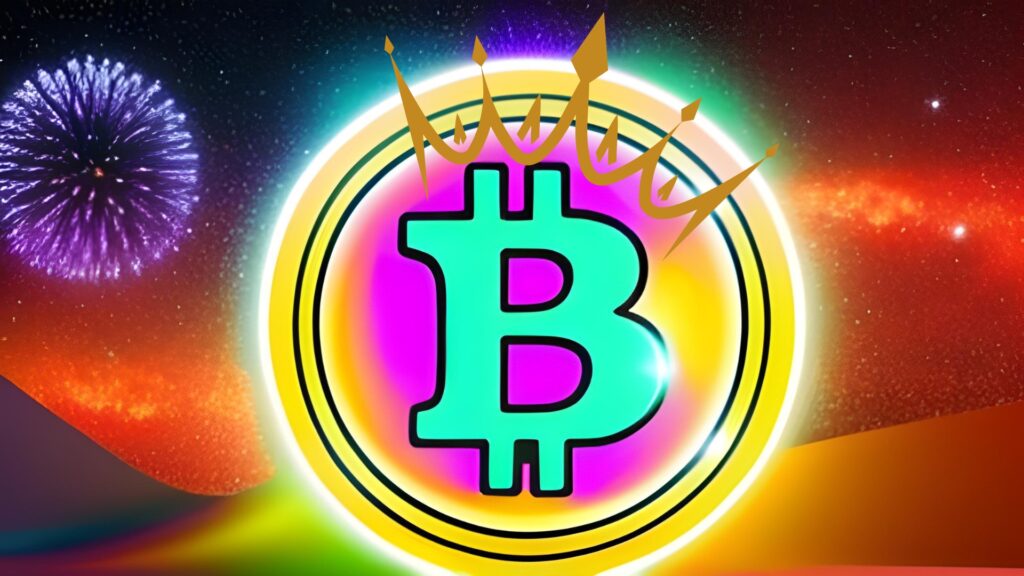
Bitcoin is King
In the realm of digital currencies, Bitcoin has emerged as a transformative force, revolutionizing the way we perceive and interact with money. Beyond its financial implications, Bitcoin has also become synonymous with the concept of achieving freedom, both on an individual and societal level. Bitcoin leads us towards freedom by empowering individuals, challenging existing financial systems, and redefining the notion of financial sovereignty with decentralized digital currency has on our lives.
A Peer-to-Peer Electronic Cash System
To understand the essence of Bitcoin and its connection to freedom, we begin with its foundational document, “Bitcoin: A Peer-to-Peer Electronic Cash System.” Authored by the mysterious Satoshi Nakamoto, this whitepaper was published in October 2008 and introduced the concept of Bitcoin to the world. Nakamoto outlined a decentralized digital currency that operates on a peer-to-peer network, allowing individuals to transact directly without the need for intermediaries like banks or governments. This groundbreaking paper laid the foundation for Bitcoin’s underlying technology, the blockchain, which ensures transparency, security, and immutability in transactions.

Study Bitcoin
“The Internet of Money” by Andreas M. Antonopoulos published in 2016, offers a captivating entry point into the world of Bitcoin. This book delves into the profound transformative potential of Bitcoin, exploring the wider economic and societal ramifications. Antonopoulos focuses on how Bitcoin can disrupt traditional financial systems, empower individuals with greater financial freedom, and extend financial access to underserved populations worldwide. Spanning three volumes, Antonopoulos takes readers on a journey through the game-changing capacity of Bitcoin and decentralized digital currencies. His work emphasizes the broader socio-economic implications of Bitcoin, making it a compelling read for anyone interested in the future of finance.
“The Little Bitcoin Book: Why Bitcoin Matters for Your Freedom, Finances, and Future” by Alex Gladstein and other contributors, delves into the profound implications of Bitcoin for expanding freedom, particularly in authoritarian regimes. Published in 2019, the book offers concise and accessible insights into why Bitcoin matters in the quest for individual financial sovereignty, protection against censorship, and resistance to surveillance. Gladstein and his co-authors highlight real-world examples of individuals using Bitcoin to preserve their wealth and evade oppressive regimes. They explore the potential of Bitcoin as a tool for economic empowerment, providing individuals with the means to transact freely and secure their financial futures. By highlighting the paradigm-shifting power of Bitcoin in regions where traditional financial systems are repressive, “The Little Bitcoin Book” showcases the ability of Bitcoin to foster freedom, financial autonomy, and economic resilience.
Dive into a thought-provoking journey through the world of Bitcoin with ’21 Lessons.’ This book goes beyond the technicalities, delving into the very philosophy of Bitcoin. It passionately explores how Bitcoin has the power to disrupt centralized institutions, offering individuals a path to financial sovereignty. Discover themes of decentralization, privacy, and the fundamental nature of money as you embark on a profound dive into the philosophical implications of Bitcoin.

Bitcoin, as both a technology and a philosophy, has the potential to redefine the concept of freedom in the digital age. The revolutionary power of Bitcoin in achieving financial sovereignty and empowering individuals, particularly in authoritarian regimes, is becoming increasingly relevant in our rapidly changing world. The ability of Bitcoin to challenge traditional financial systems, democratize access to financial services, and provide an alternative to centralized banking has been building and growing a network as a distributed public good for financial freedom for a more inclusive and decentralized future.
